Drug Addiction Treatment in Lawrence
Lawrence drug rehab for in-patient and out-patient drug detox and alcohol treatment. Addiction and chemical dependency recovery program near Lawrence MA. Drug and Alcohol Rehabilitation techniques used in our Essex rehab and detox centers near Lawrence. Programs for drug and alcohol abuse that include inpatient and outpatient recovery for addiction are explained as well as the benefits and drawbacks of both. Many health insurance providers will pay for alcohol and drug rehab. Call us to find out what options are available for you.
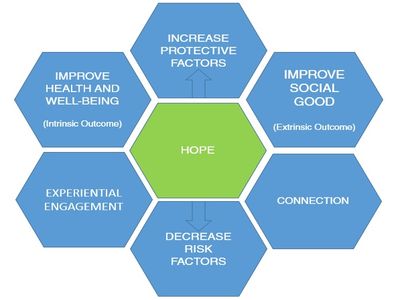
Mental Dependency – What Is Psychological Dependency?
The term psychology is generally implied to refer to behavior processes that relate to the feelings or the mind. The term psychological dependency is generally meant to explain the emotional as well as mental processes that are associated with the advancement of, and also recuperation from, a compound usage condition or drug addiction. There could be no complete splitting up of emotion and cognition from physiology. To indicate that “psychological reliance” is not as significant as “physical dependency” stands for a misconception; in truth, these two classifications do not exist as mutually special categories and also as a result can not be contrasted as if they exist independently from each other.
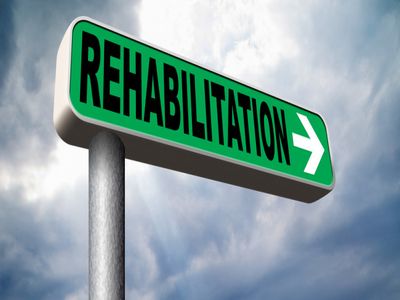
Substances associated with Psychological Dependence
The general monitoring below is that materials of misuse are connected with both emotional and physical aspects of dependence; nonetheless, many sources divide the facets of the growth of a material use disorder and also the withdrawal procedure right into compounds that are connected with withdrawal symptoms that are mostly emotional in nature. Normally, these materials consist of:
Many stimulants, including cocaine as well as Ritalin
A lot of hallucinogenic medications, such as LSD
Cannabis products (although there is installing evidence that there may be a considerable physical procedure of withdrawal that happens in persistent users of cannabis items).
Numerous inhalant items.
Lots of psychotropic drugs, such as antidepressant drugs.
Treat of emotional reliance
One essential distinction that could be made pertaining to the difference between medicines that are taken into consideration to result in physical versus mental dependence is that the withdrawal procedure from a few of the medicines that are considered to be strong candidates for physical dependency, such as alcohol, benzodiazepines, and barbiturates, can lead to the advancement of potentially fatal seizures. However, this problem does not normally occur with withdrawal from opiate drugs, which are additionally taken into consideration to be exceptionally literally addicting. The recovery process for individuals that have developed compound use disorders to these materials should be strictly monitored by a doctor or psychoanalyst that focuses on dependency medicine to determine any possible seizure activity and also right away resolve it.
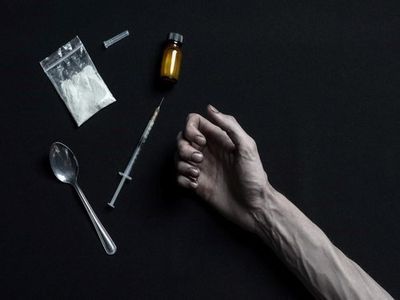
Types of Treatment in Lawrence
Drugs
Several medications have actually been located to be efficient in dealing with dependency to opioids, alcohol, or pure nicotine in grownups, although none of these medications have been accepted by the FDA to deal with adolescents. More recent substances continue to be studied for potentially treating material use conditions in grownups and also teenagers, yet none other than those listed here have revealed conclusive results.
Keep in mind that there are currently no FDA-approved medications to treat addiction to marijuana, drug, or methamphetamine in any age.
Buprenorphine lowers or eliminates opioid withdrawal signs and symptoms, consisting of drug yearnings, without producing the “high” or hazardous side effects of heroin and various other opioids. It does this by both activating and obstructing opioid receptors in the brain (i.e., it is just what is called a partial opioid agonist).

Methadone also protects against withdrawal signs and symptoms and reduces desire in opioid-addicted individuals by triggering opioid receptors in the brain (i.e., a complete opioid agonist). It has a long background of usage in therapy of opioid reliance in grownups and is available in specifically accredited methadone treatment programs. In pick instances and in some States, opioid-dependent teenagers in between the ages of 16 as well as 18 may be eligible for methadone therapy.
Residential Drug Rehabilitation in Lawrence
Sixty-two percent of those that had professional aid in treating their addiction remained in healing for three years after therapy, contrasted to just 43 percent of those that really did not obtain treatment. This reveals that getting professional treatment is vital to getting to the finest outcome.
Residential Lawrence drug rehab particularly is typically more practical because it requires that the person remain in therapy for the amount of time essential to impact modification.
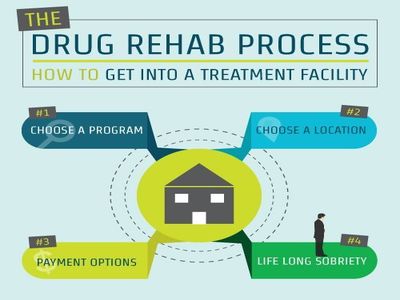
In the NIDA post it is specified that an important aspect of drug addiction treatment is staying in therapy enough time to complete the different parts of the program, because this allows people to emerge with the highest level of self-confidence in their recently learned skills as well as tools for staying in recuperation. Due to this, each of the components of a top notch treatment program works best when it is developed to assist people make it through the entire therapy procedure.
Residential rehabilitation provides 24-hour care in a setup where the focus is aiding individuals attain as well as keep recovery from drug addiction. As a result of this, these programs are able to use a breadth of services that are more likely to help customers develop capabilities as well as devices to stay in healing well after leaving the program. These include:
Clinically sustained detoxification and also withdrawal, if required.
Clinically sustained maintenance care, if required.
Private treatments, such as Cognitive Behavior Modification.
Household or couples counseling.
Structure abilities and also devices that are needed permanently post therapy.
Follow-up care after the formalized program ends.
Outpatient Treatment
Outpatient rehab allows customers to live at home and take part in therapy at an outpatient center during the daytime. This type of program pays for individuals more freedom in therapy, giving customers the capability to maintain a job and also keep up with day-to-day obligations in your home. Those simply starting outpatient care may require daily sessions with a specialist or scientific staff, while those additional along in recuperation (or with much less severe addictions) could be successful with part-time sessions one or two times per week.
Outpatient programs normally last anywhere from one to three months, as this is the window of time in which those in healing are most at risk to regression. The length of time a customer invests in outpatient care depends on their development in recuperation, which takes into consideration their mental stability and physical wellness.
An outpatient drug rehabilitation program offers alcohol and drug therapy sessions that could be set up throughout different times throughout the week. This schedule permits people to continue with their routine duties and also proceed living in your home, however they are called for to check into treatment at their allotted times for counseling as well as medicines.
Recovery
Healing is a goal of alcohol treatment, and also recovery-oriented systems of treatment are being created to support that objective. Individuals that are “in recuperation” understand just what it means to them and also how vital it is in their lives. They require no formal meaning, but for the public as well as those who research, examine, and develop policies concerning addiction, recovery is a principle that could in some cases seem uncertain.
Essentially, healing is a complex and dynamic procedure including all the positive advantages to physical, psychological and social wellness that can take place when individuals with a dependency to alcohol or drugs, or their family members, get the assistance they require.
Therapy
Counseling is a crucial part of drug abuse therapy for many people. Cognitive behavioral therapy, family counseling, and various other therapy strategies can aid individuals recuperating from opioid addiction keep tidy.
12 Step Programs
The 12-Step ideology spearheaded by Alcoholics Anonymous is utilized by regarding 74 percent of therapy. Several addiction therapy programs supply choices to 12-Step methodology for those who like a more secular structure for treatment.
SMART Recuperation
SMART Recovery is an abstinence-based, not-for-profit organization with a sensible self-help program for people having issues with alcohol consumption and using. It consists of numerous concepts as well as techniques to help you change your life from one that is self-destructive as well as miserable to one that is positive and satisfying. SMART Healing is not a spin-off of Twelve step programs. No person will certainly identify you an “alcoholic”, an “addict” or “unhealthy” nor “powerless”, and also if you do not rely on a religious beliefs or spirituality, that’s great, as well. We show sound judgment self-help treatments created to equip you to stay away as well as to establish a much more favorable way of living. When you are successful at following our strategy, you could graduate from the program, or you might remain around to help others.
Client-centered strategies
In client-centered chemical abuse treatment, you could assist made a decision features of your medication addiction therapy strategy including:
- The speed at which you progress.
- The length of your stay.
- The goals of your program.
Together with specialist personnel the addict identifies specifically what they want to leave their keep. Every week, you and also your personal specialist will assess your medication dependency therapy and choose whether or not you are reaching your goals, falling short or exceeding them and adjust your therapy plan as necessary. The partnering is truly important here- your objectives are your roadmap via therapy.
Psychoanalysis
The psychoanalysis sight suggests addiction is basically a disorder of self-regulation. Addiction is called a defensive method to prevent feeling of helplessness or powerlessness. Drug abuse is a useless attempt to make up for internal emptiness without success. The addict attempts to make up through addictive actions for uncomfortable subjective states of low self-esteem, doubts as well as anxiousness. Making use of medicines supplies a sensation of approval and also feeling of temporary self-confident. Addict substitutes an imaginary globe, where he remains in complete control, for the real life, where he really feels ineffective as well as out of control. Repeated use of medications to get relief becomes a way of life. Alleviation is short-term, however in the long-lasting substance abuse comes to be an end by itself. The addiction issue prevents the customer from recognizing regarding her distress, as well as the advancement of psychological capability to self-soothe.
Relapse avoidance
A significant cognitive-behavioral method to addiction healing as well as therapy has been Alan Marlatt’s (1985) Regression Prevention method. Marlatt explains four psycho-social processes appropriate to the addiction and regression processes: self-efficacy, result spans, attributions of causality, and also decision-making processes. Self-efficacy describes one’s ability to deal effectively as well as properly with high-risk, relapse-provoking scenarios. End result spans refer to an individual’s expectations concerning the psychedelic effects of an addicting material. Acknowledgments of origin refer to a person’s pattern of ideas that relapse to drug use is a result of interior, or rather exterior, short-term causes (e.g., allowing oneself to make exceptions when faced with what are judged to be unusual situations). Decision-making processes are implicated in the relapse procedure. Substance use is the result of multiple choices whose collective effects cause intake of the intoxicant. Marlatt worries some choices- referred to as obviously unimportant choices- could appear irrelevant to regression yet could actually have downstream implications that place the customer in a high-risk situation.
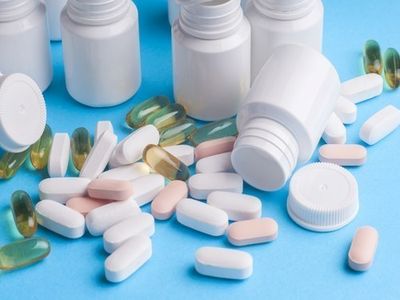
As an example: As a result of rush hour, a recovering alcoholic may determine one afternoon to exit the freeway and also traveling on side roads. This will certainly lead to the production of a risky situation when he recognizes he is unintentionally driving by his old favorite bar. If this person is able to employ successful coping strategies, such as distracting himself from his cravings by turning on his preferred songs, after that he will avoid the regression threat (PATH 1) and heighten his efficiency for future abstaining. If, however, he does not have coping devices- as an example, he may begin ruminating on his yearnings (COURSE 2)- then his efficacy for abstaining will reduce, his assumptions of positive outcomes will certainly raise, as well as he may experience a gap- an isolated return to compound drunkenness. So doing cause just what Marlatt refers to as the Abstaining Offense Effect, characterized by sense of guilt for having gotten intoxicated and reduced efficiency for future abstinence in similar alluring situations. This is an unsafe path, Marlatt suggests, to full-blown relapse.
Dual Diagnosis – Addiction and Mental Health
When a person is identified with both a substance abuse problem and a mental health concern, then it is termed a Double Diagnosis. Common mental health and wellness problems that tend to happen along with dependency consist of:
- Stress and anxiety conditions.
- Modest to serious depression.
- Character conditions.
- State of mind problems.
- Schizophrenia.
In lots of instances, signs and symptoms of the psychological wellness problem show up. As they become more and more overwhelming, the client might attempt to “treat” those signs by using various medicines. A client that has a hard time with clinical depression might try to improve their mood by taking heroin or prescription medications. Clients that are coping with anxiety might attempt to calm themselves by cigarette smoking cannabis. On the other hand, a person taking care of an eating problem may attempt to advance their fat burning efforts by abusing energizer medicines like drug or crystal meth.
In other instances, the medicine dependency comes first as well as due to chronic substance abuse, psychological wellness issues could establish later on due to the fact that substance abuse alters brain function in time.
Sober Living House
Sober living houses are group residences for those recovering from a dependency. Most of these residences are independently possessed, although some team residences are owned by organizations and also might even be owned by charity organizations. Residences are typically found in quiet areas in order to help ensure a peaceful atmosphere for individuals in early recuperation.
These sorts of residences are different from rehab centers; rehab centers usually use a more intensive recovery experience and offer residents much less flexibility. People who reside in sober living facilities can usually come and go as they please as long as they adhere to specific regulations. Sober living residences might need homeowners to be home by a particular time or to go to work throughout the day. Homeowners might also be subject to routine medication testing to demonstrate continuous soberness.
